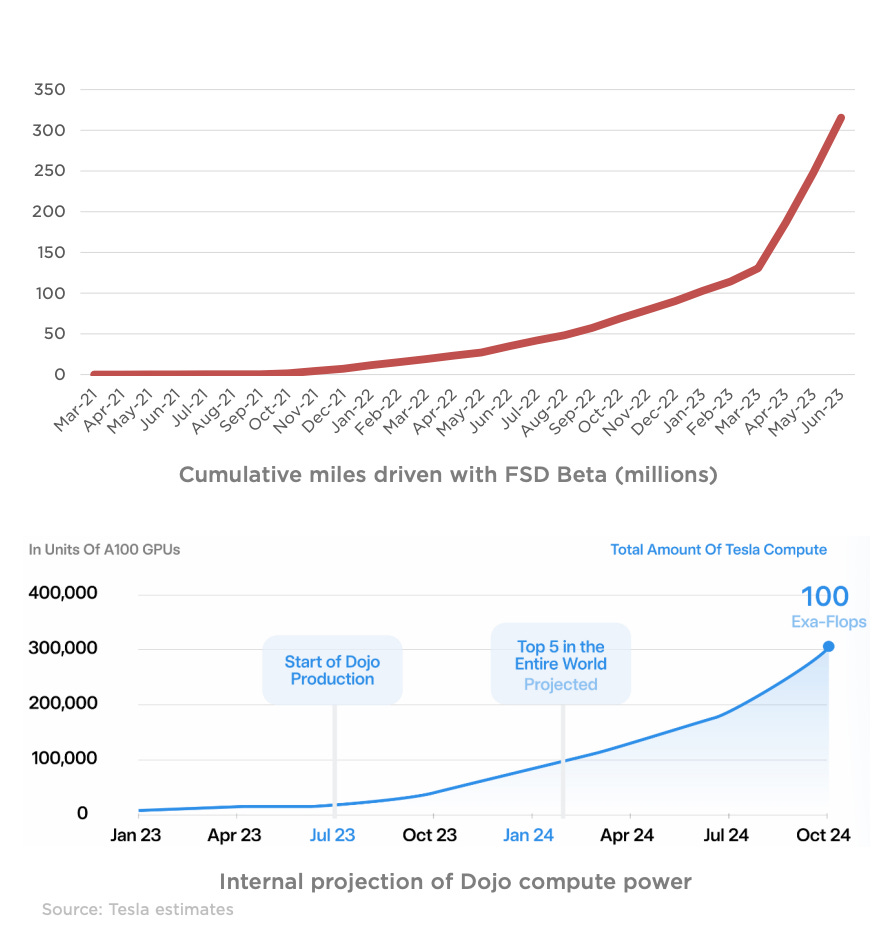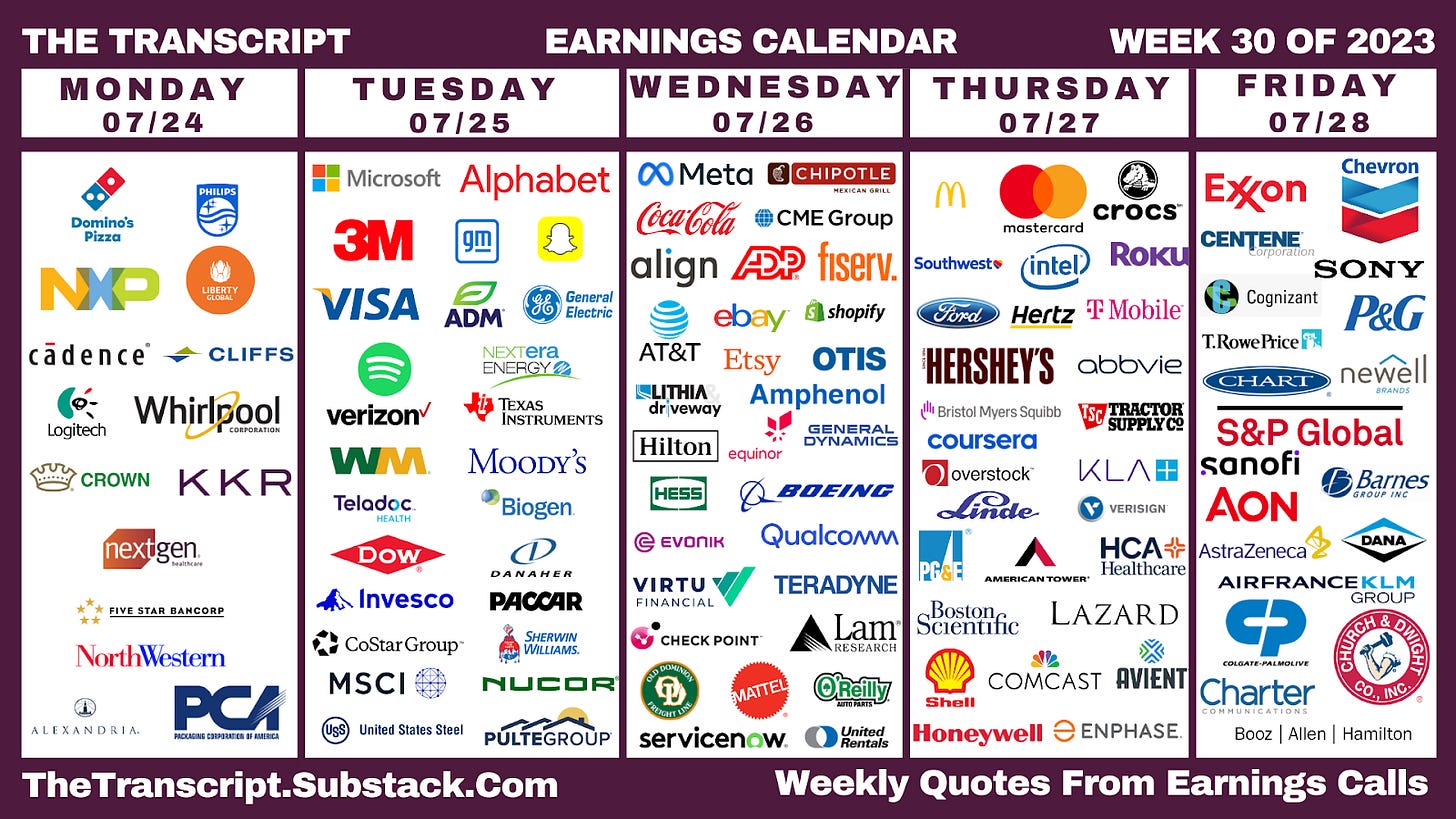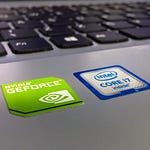In this episode, we discuss key gleanings from the earnings season including takeaways from bank earnings, inflation, and AI.
The episode is based on yesterday's newsletter which is available on Substack.
Healing Capital Markets
Summary: Markets are showing some optimism that we have made it through inflation and interest rate shocks without creating significant recessionary pressures. As equity indexes rise, capital markets are starting to open back up. The Fed may raise interest rates one more time, but markets appear to be looking past this and are enthusiastic that the finish line may be approaching.
A transcript of this podcast, with relevant images and quotes, is available for all subscribers after the show notes below. Our podcast is available on Apple Podcasts, Spotify, Google Podcasts, YouTube, and Amazon Music.
Show Notes
00:00:00 Introduction
00:00:15 A Sense of Optimism
00:01:33 Consumer Still Doing Well
00:03:14 Fed Talk
00:04:42 The AI Frenzy
00:07:44 Tesla and AI
00:08:57 Real Estate Opportunities
00:10:03 Heavy Week Ahead
Transcript
Introduction
[00:00:00] Scott: Welcome everyone to a new episode of the Transcript podcast. You've got me, Scott Christoff, I'm editor of the Transcript, along with Eric Mokaya, who's our lead author.
A Sense of Optimism
“I think we are beginning to see this pick up in activity. And as markets rally, that tends to lead people to have more confidence to transact, which plays its way through ultimately to our customers. Right now, we're still - - there's a bit of a lag as you think about it in terms of fundraising activity, but a sustained good period for markets is very helpful for our ability to raise capital, particularly from institutional investors, also from individual investors." - Blackstone (BX 0.00%↑) COO Jonathan D. Gray
We're back for a podcast. It's been a while since we had a new episode, but hopefully, everybody is still looking forward to hearing what we have to say about the markets. So set out a new issue of the newsletter yesterday, and what we saw last week is optimism in the economy. I think the thing that stood out most to me is that capital markets appear to be reopening or ready to. I think the investment banks, Goldman Sachs and Morgan Stanley both talked about having more robust pipelines in their capital markets groups in terms of both m and a and equity capital markets. I think those are really important signs considering that equity indexes are up a lot this year and to see capital markets reopening is a really big step forward for the economy. And so maybe we have avoided recession, although the Fed may want to raise rates one more time or two remains to be seen, but it would be strange if we didn't get one. But here we are. What do you think Eric?
[00:01:07] Mokaya: This is Fed week this week, and I think the consensus seems to be that there will be one more raise and then Jackson Hole. So I think it'll be a very important meeting to see what kind of talk the Fed comes up with this week. From the banks that have reported so far, what is, of course, most of them, the earnings that are slightly down I think affected a lot by those who have a little bit more exposure to investment banking. It's been a rough year, a year and a half I would say since the rates went up.
Consumer Still Doing Well
But it seems like overall the consumer is still the same as we left two months ago when we did the last podcast. The consumer is still faring very well. They pretty much have good balances in their accounts. The high-end consumer is still spending as much as possible, American Express says, especially travel and entertainment is doing pretty well. Seems like people are still on that post-pandemic kind of party mode traveling the world getting as much entertainment as possible. And capital markets are starting to reopen back up. But I wanted to ask you a question. How do you reconcile the fact that capital markets are yet to open yet when you look at the, let's say the equity indexes, they're still up for the year. AI is driving a boost in growth in a lot of companies and Microsoft is driving one of the best years it's had so far. I don't know, How do you reconcile the two? Are we past the point where we can say comfortably that we'll have a soft landing or no recession at all?
[00:02:26] Scott: That's a big question. I think this is a normal time for capital markets to re-opening. A rough year that we had last year. And even though we didn't really have a full recession, we certainly had a slowdown in capital markets activity, if not the whole capital markets were closed to companies trying to access it. IPOs barely happened last year. Are we at a soft landing? Has the economy avoided a recession? I think it's a little bit too early to say still, especially with the Fed planning to keep raising interest rates and hold them there throughout 2024. So equity indexes are clearly excited about the prospects for the economy. But I don't think it's a fully-baked story yet.
Fed Talk
[00:03:14] Mokaya: And a quick question also in terms of let's say like the market as they are currently. Why would the Fed want to raise rates when the inflation or when you look at the interest rate, the best lending rate is above the inflation rate so to speak, or somewhere there? Why would they want to keep raising rates? What's the message?
[00:03:32] Scott: First of all, I think that the inflation, the headline inflation rate that people are focused on at 3% is clearly lower than the core inflation rate, and the core inflation rate is still elevated, and so I think the Federal Reserve wants to make sure that the core inflation rate is coming down. So they're looking at that for one. Number two is what we've been talking about now for probably 18 months or more, which is that the Fed put, has turned into a fed call, whereas. When we heard, we were in an inflationary environment and we wanted to promote higher asset prices, the Fed always stood ready to buy securities, basically, not directly. Actually yes, directly. As indexes fell, the Fed would step in and try to promote economic growth, but as equity indexes are rising now, the Fed is sitting on top, and so I'm sure they're looking at. For instance, the performance of the NASDAQ and speculative companies in the NASDAQ stocks of speculative companies and are looking at that, thinking maybe the economy's a little bit hotter than what we want it to be, and maybe inflation could come back pretty easily.
The AI Frenzy
"The short-term frenzy about the AI demand definitely cannot extrapolate for the long term. And neither can we predict the near future, meaning next year, how the sudden demand will continue or will flatten out. However, our model is based on the data center structure. We assume a certain percentage of the data center processor are AI processors and based on that, we calculate the AI processor demand. And this model is yet to be fitted to the practical data later on." - Taiwan Semiconductor Manufacturing Chairman Mark Liu
[00:04:42] Mokaya: Beyond Fed Talk and inflation, I think the AI frenzy is still going on. It's been the main theme for the first half of the year, and it seems like it'll continue to be the theme for the second half of the year. Two things for me that stood out from the tech section. One is that the AI frenzy is a bit hard to extrapolate for the long term. So I think TSM was being asked what their projections would be in terms of benefiting from AI. But it seems like they're not able to, very quickly, give an estimate on how, what kind of an impact should be positive, but they don't know how much of that positive impact.
And I think the second thing that stood out was the fact that there's a shortage of skills in the US to build fabs. So I think with deglobalization what's happening is that a lot of the Global manufacturers of chips are being forced to move from Taiwan to the US but then they're coming to the US and realizing the talent is not there to be able to help them grow.
So it seems that's positive for companies or for individuals that are positioning themselves as to be good, at least to be skilled in this area, to skill themselves in this area of making fabs. But I think it also made me appreciate what kind of level of skill it takes to make some of these really minute things that we don't actually pay attention to until we get or we run out of whether until there's an issue, at least in Asia, to be able to help to make companies rethink the supply chains. Any thoughts on AI and all that?
"Our fab in Arizona started construction in April 2021 with an aggressive schedule. We are now entering a critical phase of handling and installing the most advanced and dedicated equipment. However, we are encountering certain challenges as there is an insufficient amount of skilled workers with those specialized expertise required for equipment installation in a semiconductor-grade facility. While we are working on to improve the situation, including sending experienced technicians from Taiwan to train the local skilled workers for a short period of time, we expect the production schedule of N4 process technology to be pushed out to 2025." - Taiwan Semiconductor Manufacturing Chairman Mark Liu
[00:06:06] Scott: Yeah, I think you make some interesting points, especially the Taiwan semi quote about the short-term frenzy not being able to extrapolate. That's a really important quote because Taiwan semi is obviously core to the AI ecosystem, and AI has been arguably the driver of equity markets this year. And so to the extent that the excitement over AI isn't translating into real physical earnings growth or top-line growth At a company like TSMC, it suggests that maybe the AI hype is a little bit overblown in the near term. Now, all that said, I think that this is still likely to be a transformative technology and there is an extremely large physical component to AI, which I think people are, it's easy to forget, given what we have seen the algorithms do. But, from a semiconductor standpoint and other physical materials standpoint. AI still, like all compute, ends up in a physical space. And so the quote that you were talking about having a shortage of skilled labor that can build semiconductor fabs in the United States. I think this is a key part of it, when you have an area where there's a lot of demand for new capacity, but there's a limited amount of supply that can come through. You have shortages, you have bottlenecks, you have increasing prices. This is fundamentally just an age-old industrial cycle but with a very new-age tech twist.
Tesla and AI
[00:07:44] Mokaya: All right. And then Tesla this week or last week, I think they had the earnings call and they believe they have a strong data advantage. In terms of AI, I think one of the key things we picked in the last couple of quarters is that companies with the correct level of data, can they be able to leverage. All the correct types of data can be able to leverage AI a bit better than others. And Tesla says they have a huge amount of data they've collected from being in the field and being an EV company for so long. What's your take on a FSD AI and generally Tesla and its positioning in this market?
[00:08:16] Scott: Yeah, you and I have been talking about full self-driving for most of this year, that we have large language models in AI that have been transformative to capital market psychology, and Elon keeps signaling that he believes they're very close to true full self-driving. And so whether that happens this year or next year or the year after, still will be pretty significant if all of a sudden we have cars on the road that don't really need human drivers and that is happening to us. Yeah, this is something that could provide another tailwind to the AI boom. The capital markets are starting, it's starting to price in probably, but maybe not fully.
Real Estate Opportunities
[00:08:57] Mokaya: All right. Real estate I think what's one of the things that banks are also talking about the exposure to the real estate market. It seems like there's a bit of positive science and residential real estate driven mostly by supply that is limited. So supply being limited means that demand even if it's slightly higher, it means that it pushes up a bit of pricing. So there's so much negativity around c r e, especially for the first half of the year. I think my key pickings for the first half, and especially for this earning season, has been that there actually could be opportunities for some of those bold players to, to actually have a look at CRE. So people are looking at it as a whole bucket, but then there are pockets, I think as Blackstone tells us that you can look at and maybe see some areas of investments. Do you agree with that or what's your take?
[00:09:41] Scott: Yeah, it's hard not to listen to Blackstone when it comes to commercial real estate, but it is interesting. There's certainly a lot of negativity around office. It's hard to see how office will come back in a robust way. But there could be opportunities here that are starting to form for adventurous value investors.
Heavy Week Ahead
[00:10:03] Mokaya: And beyond all this, I think it's the heaviest week in terms of earnings this week. This is a big tech week, so we have meta, we have Microsoft all of them reporting this week. Intel also. Anything that you're looking out for, or at least you've seen in the past couple of two weeks in terms of earnings season? Unless we go ahead.
[00:10:20] Scott: No, I think the earning season is big. Fed Week to your point is big too, I think. I'm not expecting a lot of surprises, but there should be a lot of data this week.
[00:10:30] Mokaya: Of course, we expect more AI talk. We'll be counting the number of times they talk about AI and positioning some of the products. I think this should be the quarter when we see a bit more substance in terms of what kind of product they put out there. I think last week I think we noticed Microsoft already is charging for its usage of AI and co-pilot, so they found a business model. So, for the past couple of weeks, what we've seen is companies trying to see. Which kind of business model would be best suited for an AI environment? I think it's a good time to learn all that. So I think that's a good place to close out, don't you think for this week? I think so. We hope to be back again next week. Depends on Scott a lot. Alright. Thank you so much for joining us this week. J check us out on Twitter or as it's being renamed to x. We are there at the transcript underscore. And of course, subscribe to our newsletter and we'll be back again as soon as possible for another edition of the Transcript podcast. Bye for now.















Share this post